Azure Active Directory Interactive Authentication
This article shows how to authenticate with an Azure AD identity by using interactive authentication.
Common Prerequisites
Available account in Azure Active Directory.
Available Azure MS SQL server.
Azure Active Directory is set to centrally manage identity and access to Azure SQL Database.
Installed MS ODBC Driver for SQL Server. The current version is 17.
DSN Connection
You can connect with DNS using Data Connection Manager (DCM) or without it.
Prerequisites: User or System DSN is configured in ODBC data source manager to use Azure Active Directory Interactive authentication.
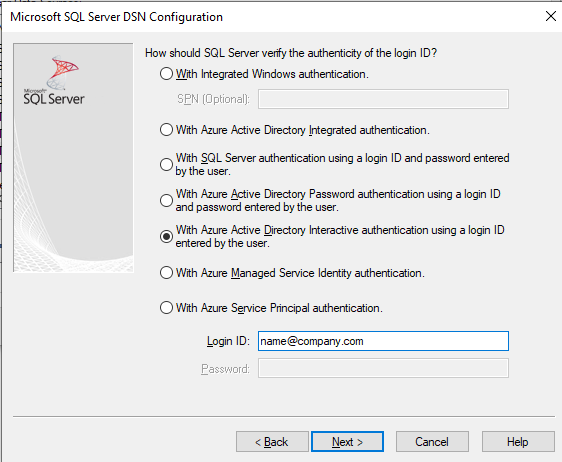
DSN Connection without DCM
Place the Input Data tool on the Designer canvas.
Select the down arrow in the Connect a File or Database field.
From Data Sources, choose Microsoft Azure SQL Database - ODBC.
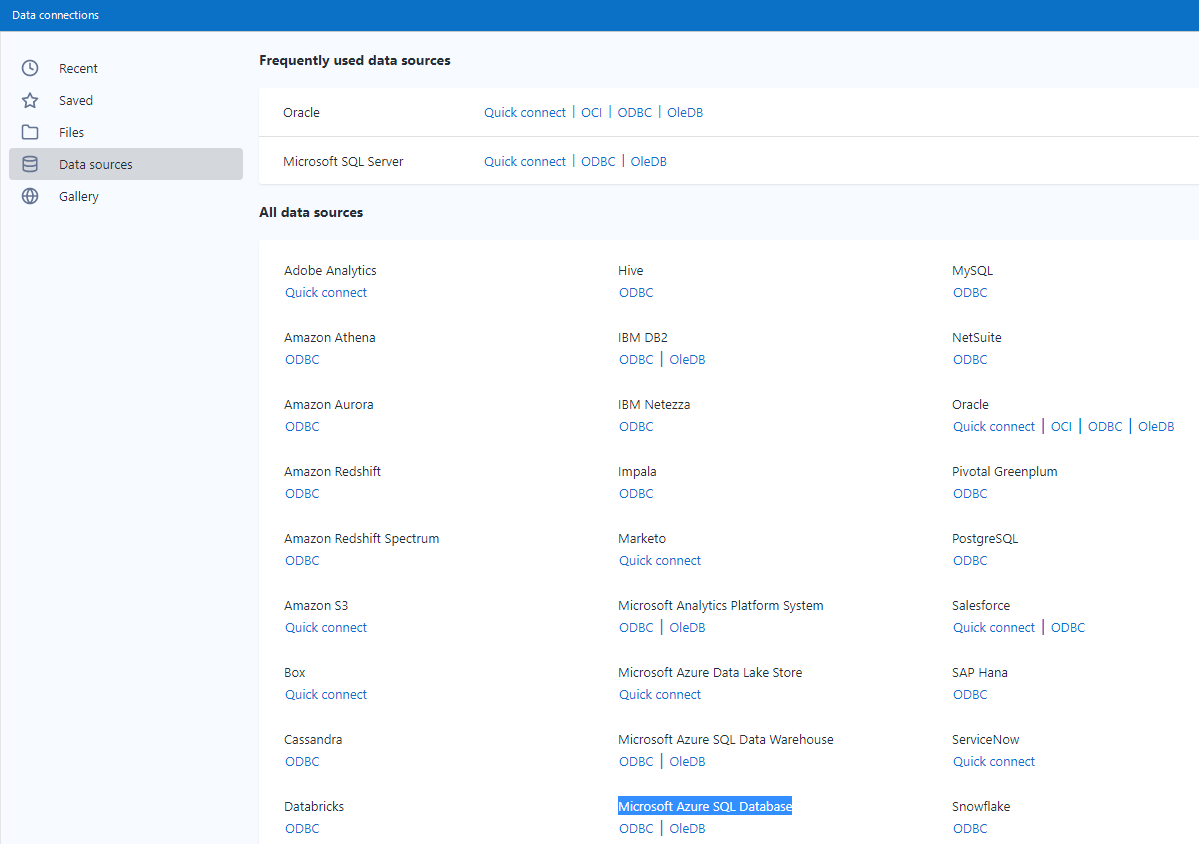
Choose DSN created in the preconditions from the dropdown.
There is no need to enter the credentials here because the external browser is triggered.
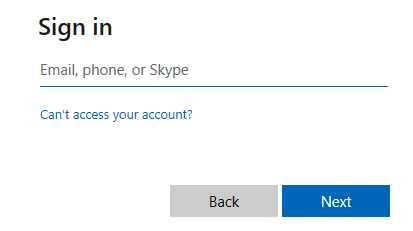
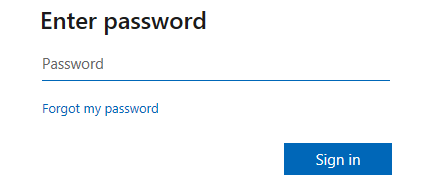
In the Query Builder, choose any table from your database.
Select OK.
Note
Credentials are required for each setting change and workflow run. To eliminate this, set Cache Data on the Input Data tool.
DSN Connection Using DCM
Make sure that DCM is enabled.
Place the Input Data tool on the Designer canvas.
Below the Connect a File or Database field, select Set Up a Connection.
Choose Microsoft Azure SQL Database - ODBC from Data Sources.
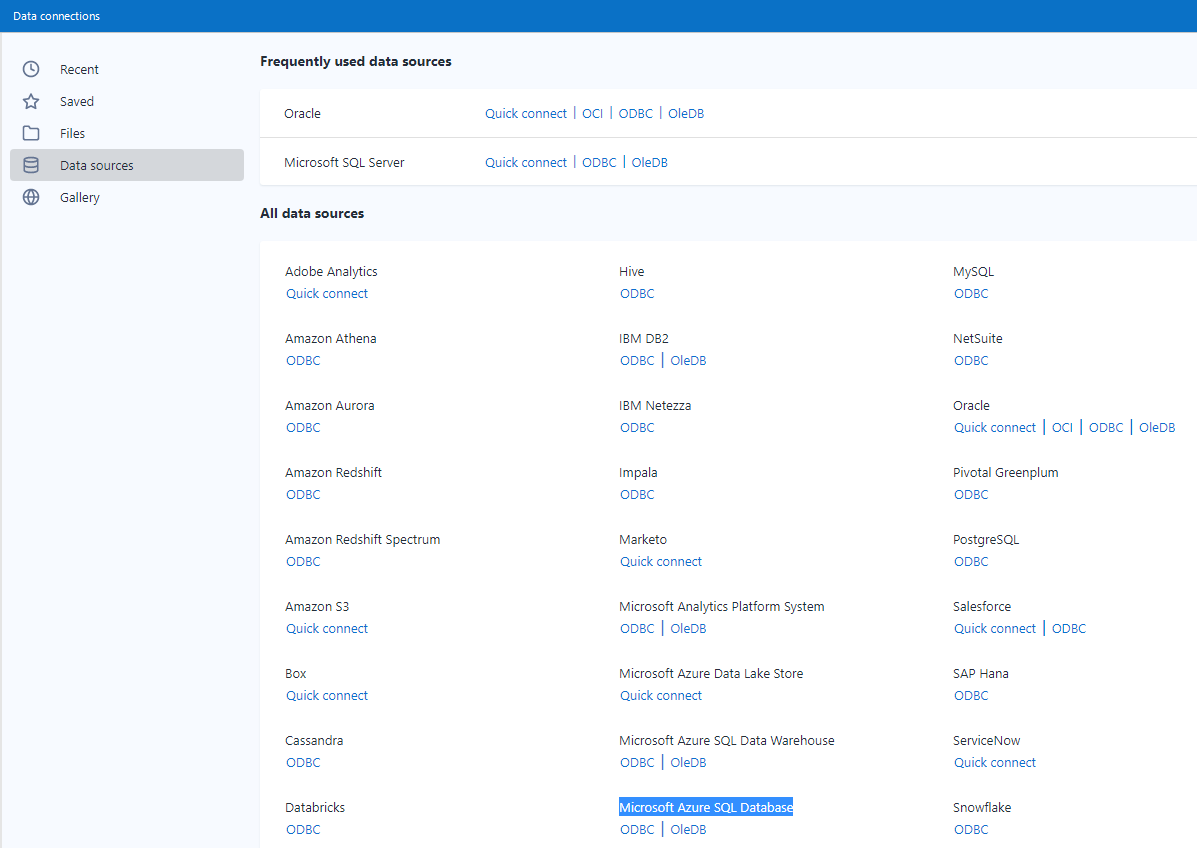
Select the Add Data Source button.

Enter a descriptive Data Source Name.
Enter the name of DSN created in ODBC Data source manager and select Save.

Select Connect Credential.
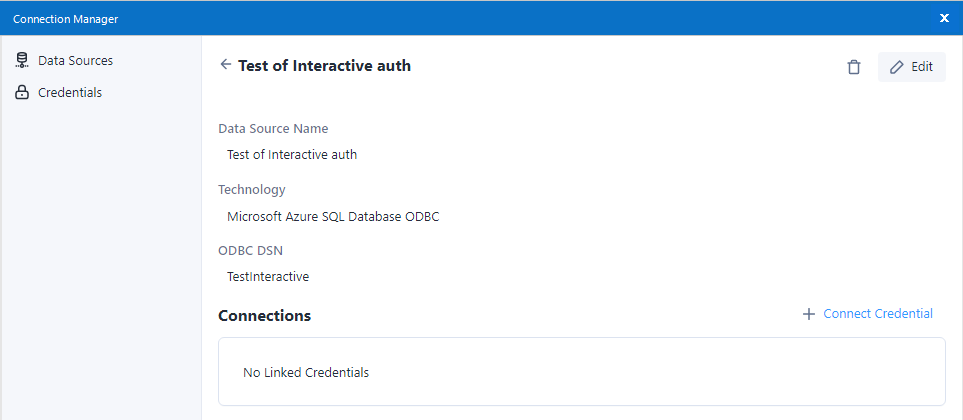
For Authentication Method select No Credentials.
Select Link.
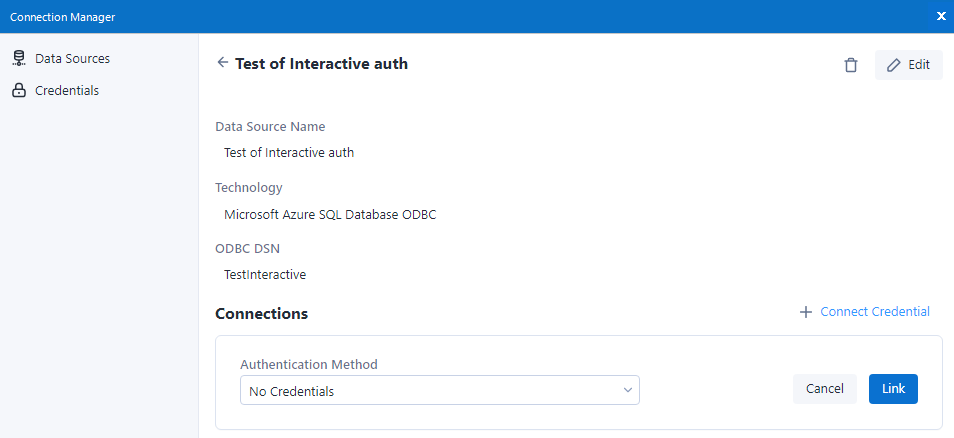
Select Connect.
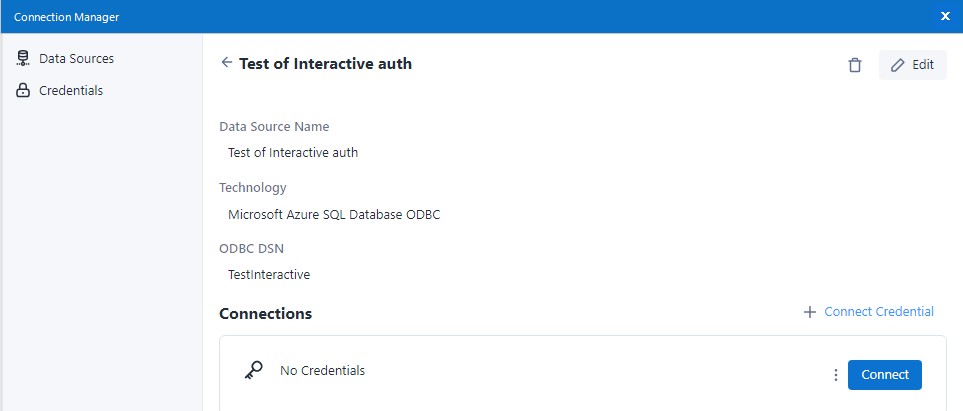
External browser is triggered to enter credentials.
Choose any table from your database in the Query Builder.
Select OK.
Note
Credentials are required for each setting change and workflow run. To eliminate this, set Cache Data on the Input Data tool.
DSN-less Connection
You can establish a DSN-less connection using Data Connection Manager (DCM) or without it.
DSN-less Connection without DCM
Place the Input Data tool on the Designer canvas
Enter this Connection string in the Connect a File or Database field:
odbc:Driver={ODBC Driver 17 for SQL Server};Server=tcp:<_your_server_>,1433;Database=<_your_db_>;Encrypt=yes;TrustServerCertificate=no;Connection Timeout=30;Authentication=ActiveDirectoryInteractiveReplace the text between the <> with actual values.
Select the 3 dot icon next to the Table or Query option.
An external browser is triggered to enter credentials.
Choose any table from your database in the Query Builder.
Select OK.
Note
Credentials are required for each setting change and workflow run. To eliminate this, set Cache Data on the Input Data tool.
DSN-less Connection Using DCM
Make sure that DCM is enabled.
Place the Input Data tool on the Designer canvas.
Below the Connect a File or Database field select Set Up a Connection.
Choose Microsoft SQL Server - Quick connect from Data Sources.
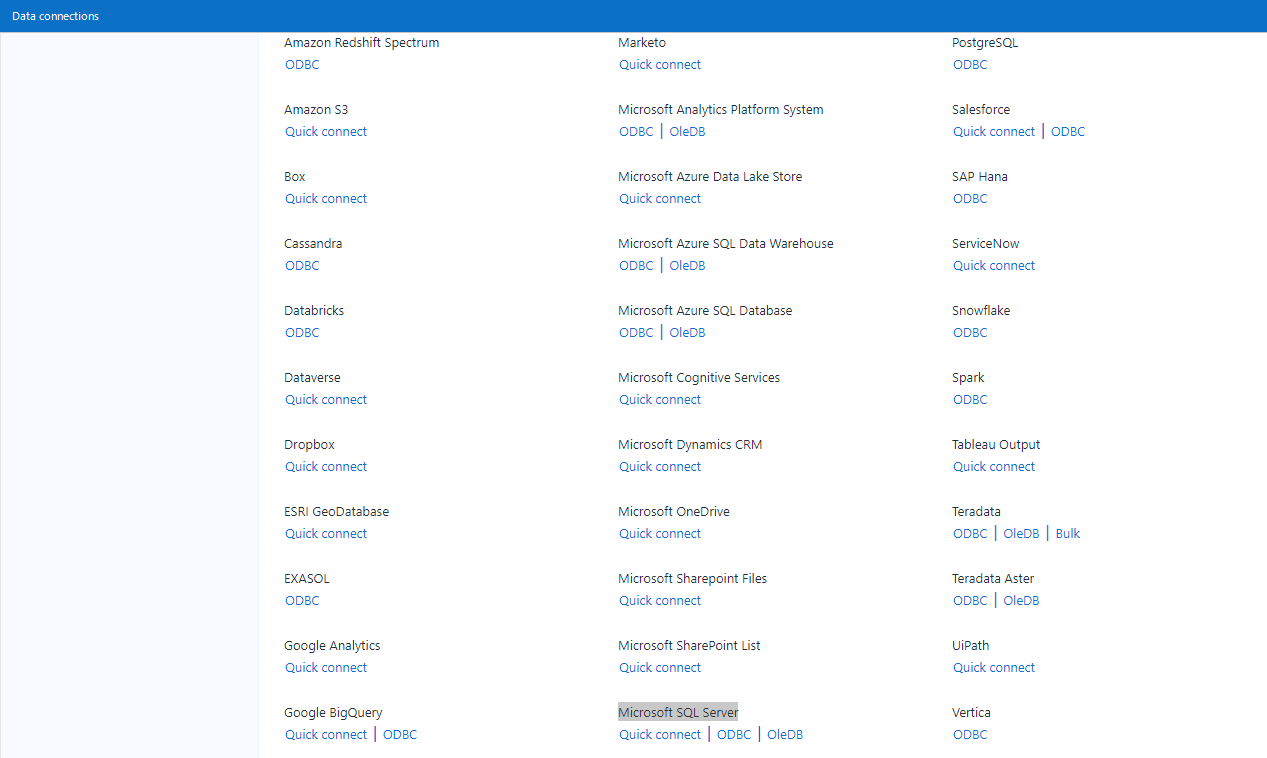
Select the Add Data Source button.

Provide a descriptive name for Data Source Name, actual server, and database name.
Make sure the Driver is set to ODBC Driver 17 for SQL Server.
Select the Save button.
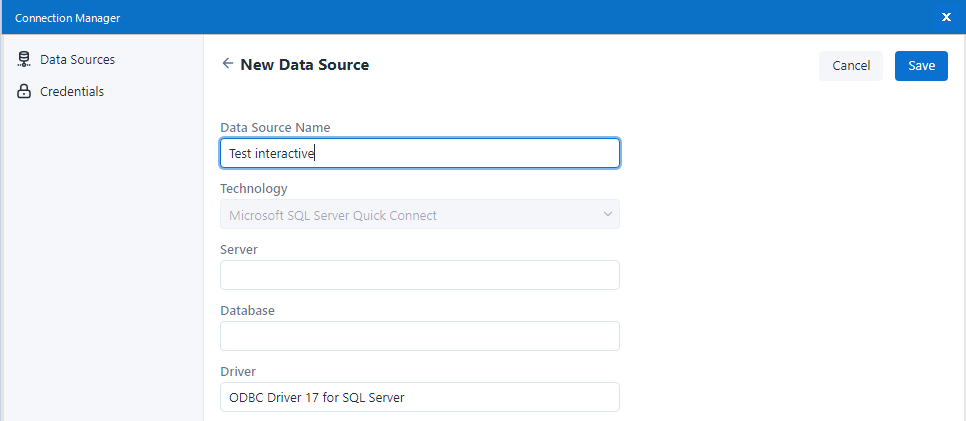
Select Connect Credential.
Choose or provide Azure Active Directory Interactive for Authentication Method and select Link.
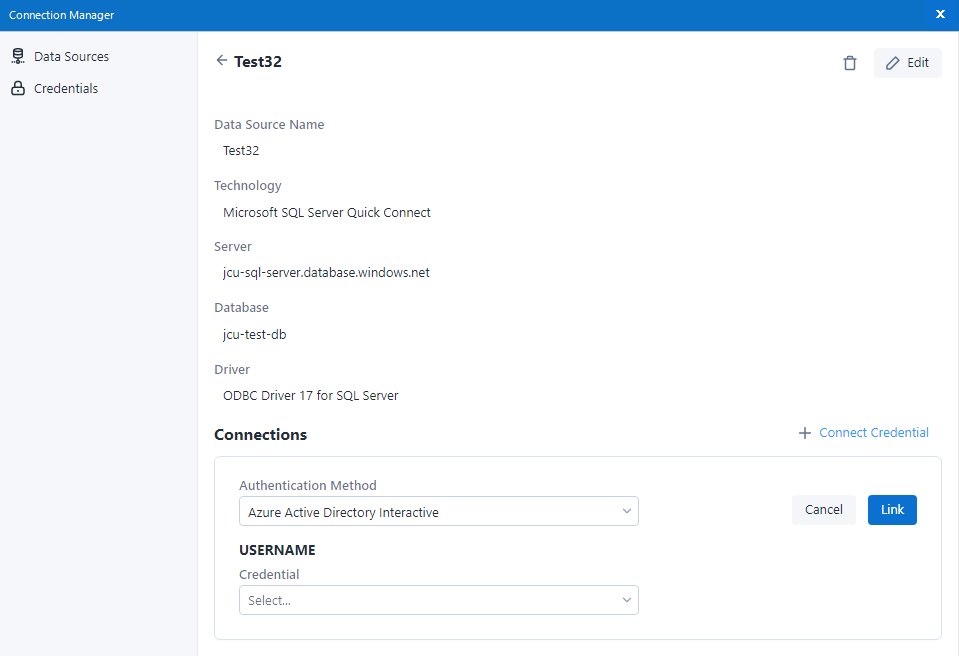
Select Connect.
An external browser is triggered to enter credentials.
Choose any table from your database in the Query Builder.
Select OK.
Note
Credentials are required for each setting change and workflow run. To eliminate this, set Cache Data on the Input Data tool.